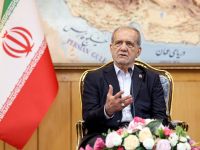The Egyptian government has agreed to reduce the price of locally produced natural gas, the oil minister said last Thursday. Egyptian Oil Minister Sameh Fahmy told reporters after the cabinet approved the price reduction, that the decision would be submitted to parliament during its new session on December 13.
Fahmy said the new gas pricing would cut the price Egypt pays to foreign companies for their share of gas produced in the country and would save the government $250 million a year. The cabinet also approved plans to export natural gas and liquefied natural gas (LNG) to Turkey and Europe, Fahmy said.
Information Minister Safwat el-Sherif said Egypt would earn an initial $265 million a year by exporting gas through a pipeline and about $280 million a year from LNG exports.
Government-approved negotiations between the ministry of petroleum and international companies which made gas discoveries in Egypt, led to an agreement that would amend the system of pricing natural gas.
The agreement would strike a balance between the two parties to the agreement which will be referred to the new People's Assembly. Egypt had signed an agreement with the international companies in the 1970s to buy its quota of natural gas on the basis of the price of Suez Gulf crude or fuel oil.
Sherif said the petroleum minister informed the Cabinet that international companies offered to lower prices as of July 2000. This reduction will provide an annual saving of $250 million, which can be increased, Sherif said. He said foreign partners would bear the required investments to build stations, liquefying factories and the required pipeline.
In July, the Spanish Electricity Generator Union, Fenosa signed a long-term gas contract with the state-run Egyptian General Petroleum Corporation to buy 40 billion thermos of gas a year.
Spain's third biggest power utility is to receive the gas by pipeline. Fenosa also agreed to invest $1 billion to build a liquefaction plant in Egypt by 2004.
In June BP-Amoco announced plans to develop an LNG plant to process and ship LNG to Mediterranean and other markets. BG International said in April it had agreed with EGPC and Italy's Edison International to build an LNG plant for export to unspecified buyers in the Mediterranean region.
Meanwhile, East Mediterranean Gas, a joint venture of EGPC, Israel's Merhav Group, began talks with Israel's Electric Corp. for laying an underwater pipeline to supply Egyptian gas to Israel.
The 780 km (468 mile) pipeline will be able to carry up to 15 billion cubic meters of gas a year and will run from Egypt to Turkey with exits at Israel Electric's power plants, the statement said.
Once approved, the first phase of the pipeline, to the northern Israeli port of Haifa, would take 18 months to complete. The second stage of the pipeline would stretch to Turkey.
EMG said it could supply enough natural gas to meet Israel's needs in the coming decades. EMG projected that Israel would need four billion cubic meters annually in the next several years. Of those, 2.5 billion would be for the state-owned Israel Electric. EMG said Egypt was also negotiating the sale of four to five billion cubic meters of natural gas a year to Turkey.
– (Albawaba-MEBG)
© 2000 Mena Report (www.menareport.com)







